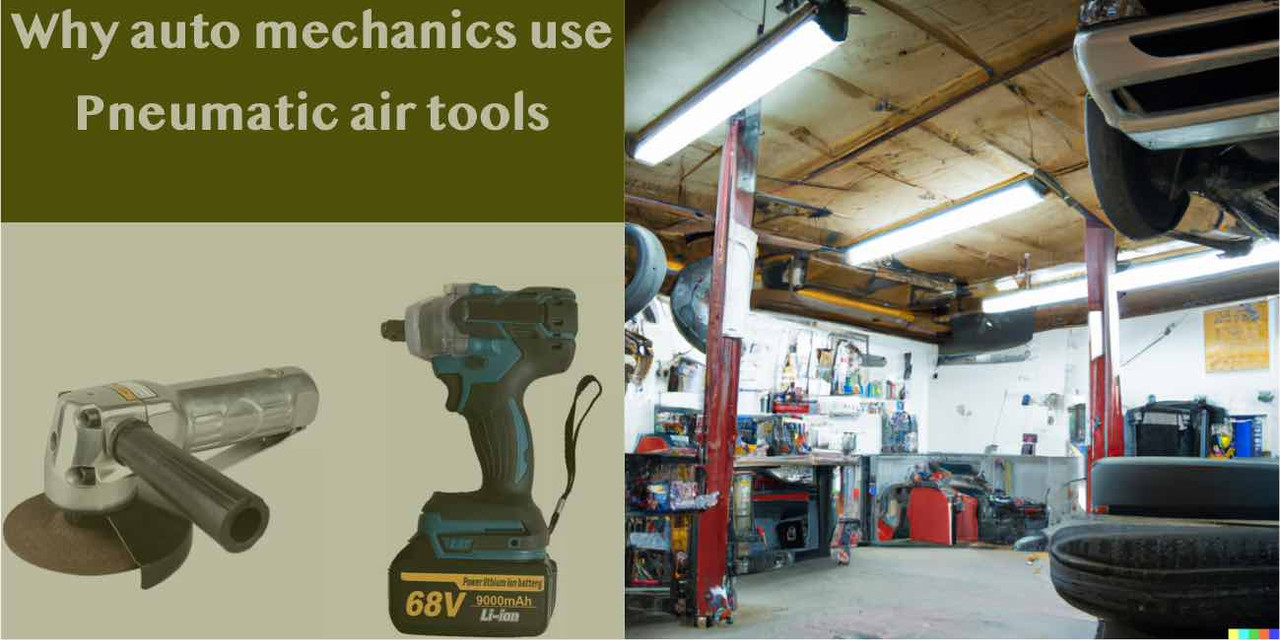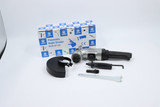Why do auto mechanics use pneumatics air tools?
For professionals to engage in any trade, they must ascertain that the income from the jobs will justify their time engaging in that trade. One of the ways to reduce cost and increase profit is the tool they use for the job. For every tool the professional has, the initial cost of acquiring it and the sunk cost of owning it is essential, and this is why having different types of power tools is crucial. This article will explore why auto mechanics use pneumatic air tools. In a different article, we have discussed why pneumatic tools are very important in workshops
Who are auto mechanics?
Auto mechanics are professionals who repair and maintain vehicles, including cars, trucks, and SUVs. They work on various mechanical systems, including engines, transmissions, electrical systems, brakes, and suspension systems. Auto mechanics typically have a strong knowledge of how these systems work and how to diagnose and repair problems that may arise. They use various tools and equipment, including hand, power, diagnostic, and specialised equipment such as lifts and jacks.
Auto mechanics may work in various settings, including auto repair shops, dealerships, and service centers. They may also be self-employed and operate their repair businesses. To become an auto mechanic, individuals typically need to complete a formal training program at a trade school, a vocational school, or a community college. Many mechanics also become certified through industry organisations such as the National Institute for Automotive Service Excellence (ASE). This certification demonstrates their skills and knowledge in the field and can help them to advance their careers.
What are the different types of auto mechanics?
There are several different types of auto mechanics, including:
- General mechanics: General mechanics repair and maintain many vehicles, including cars, trucks, and SUVs. They may work on engines, transmissions, electrical systems, brakes, and other mechanical systems.
- Transmission mechanics: Transmission mechanics specialise in repairing and maintaining transmission systems responsible for transmitting power from the engine to the vehicle's wheels.
- Electrical mechanics: Electrical mechanics specialise in repairing and maintaining electrical systems, including wiring, batteries, and ignition systems.
- Brake mechanics: Brake mechanics specialise in repairing and maintaining brake systems, critical for stopping and slowing down vehicles.
- Suspension and steering mechanics: Suspension and steering mechanics specialise in repairing and maintaining suspension and steering systems, which are responsible for maintaining stability and control of the vehicle.
- Engine mechanics: Engine mechanics specialise in repairing and maintaining engines, including diagnosing and fixing problems with engine components such as cylinders, spark plugs, and fuel injectors.
- Climate control mechanics specialise in repairing and maintaining heating, ventilation, and air conditioning (HVAC) systems.
Overall, the specific type of auto mechanic an individual becomes will depend on their interests and areas of expertise. Some mechanics specialise in a particular area, while others work on various systems and components.
Why Do mechanics use Pneumatic air tools?
Mechanics use air tools because they are more powerful, faster, and generally more efficient than hand tools. Air tools operate using compressed air, typically generated by an air compressor. Compressed air is used to power the tool, providing it with a consistent and reliable power source. This allows mechanics to work more quickly and efficiently, as they can complete tasks faster with less physical effort.
Some advantages of air tools include:
- Power: Air tools are generally more powerful than hand tools, allowing mechanics to apply greater force and torque to bolts and other fasteners.
- Speed: Air tools are typically faster than hand tools, making them more efficient for tasks that require a lot of repetition.
- Ease of use: Air tools are designed to be easy to use, with ergonomic handles and trigger controls that make them comfortable to hold and operate.
- Consistency: Air tools provide a consistent level of power and speed, ensuring that mechanics can complete tasks with consistent quality.
Overall, air tools are essential for mechanics because they help them work more efficiently and effectively, allowing them to complete tasks faster and with a higher level of precision. We have also discussed the different air tools used in an automotive workshop and how they are used.
Buy Pneumatic are tools from Tend industrial Supplies









